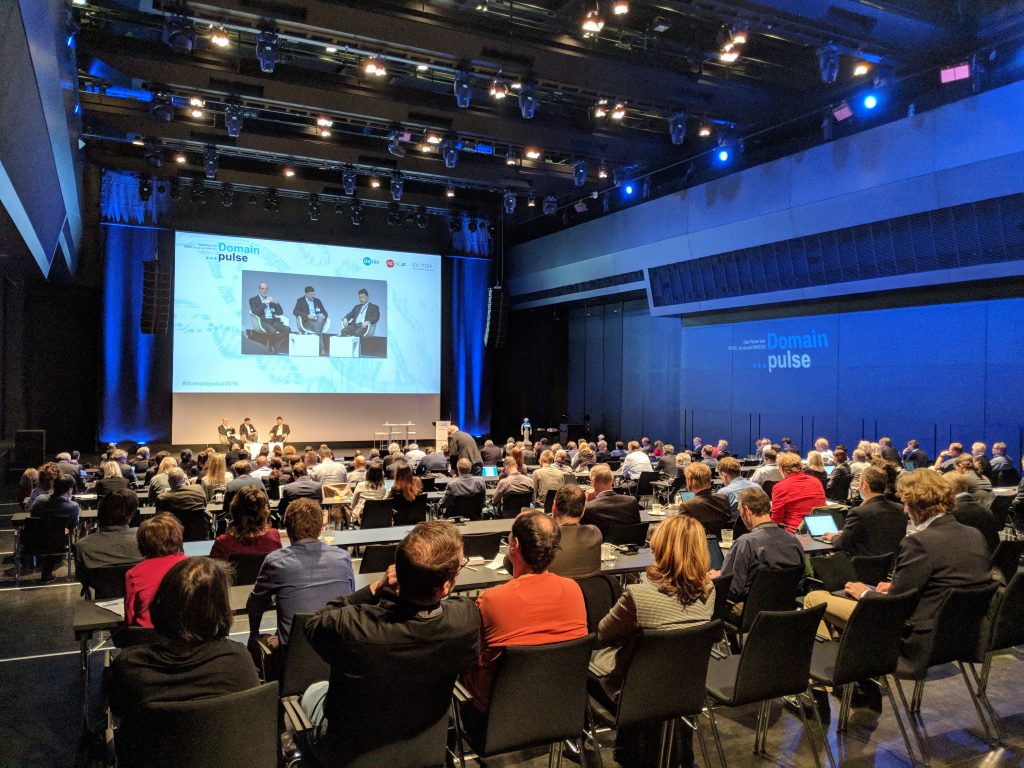 Domain Pulse 2018 got underway in Munich at BMW Welt Thursday with a keynote to kick off proceedings that indirectly reassured the record 450 attendees their jobs may not be at risk after all due to emerging technologies. In a presentation by Matthias Horx, Trend Researcher and Futurologist from zukunftsInstitut, considered the most influential trend researcher and futurologist in the German-speaking world, he noted how the fear stories in the news about the potential loss of jobs in many industries due to emerging technology is largely overblown.
Domain Pulse 2018 got underway in Munich at BMW Welt Thursday with a keynote to kick off proceedings that indirectly reassured the record 450 attendees their jobs may not be at risk after all due to emerging technologies. In a presentation by Matthias Horx, Trend Researcher and Futurologist from zukunftsInstitut, considered the most influential trend researcher and futurologist in the German-speaking world, he noted how the fear stories in the news about the potential loss of jobs in many industries due to emerging technology is largely overblown.
This year’s conference is focussed on new impulses for the industry and new digital developments and societal challenges are being discussed, a major one of course being privacy of data online with the looming introduction of the General Data Protection Regulation (GDPR).
Then Maarten Botterman, ICANN Director and Chair of the Dynamic Coalition on the Internet of Things wondered if we can we expect an overall decline of the DNS market because of a decrease of trust in the internet, or can the DNS be instrumental in making the internet safer again? There wasn’t really an answer but he did think that the GDPR, which is giving the domain name industry major headaches, in particular over how to deal with the data collected when registering domain names, was an example of governments, in this case the European Commission, “forcing something down our throats as industry didn’t act”.

Privacy was a major discussion point, and in a discussion titled Smart Mobility Put to the Test: Technology and Morality of Connected Driving, Prof. Eric Hilgendorf, Head of Robotics Law Research Unit at the University of Würzburg and Member of the Ethics Committee on Connected Driving of the Federal Ministry of Transport and Digital Infrastructure, Dr. Dirk Wisselmann, Senior Engineer Automated Driving, BMW Group and moderator Dr. Stefan Heumann, Stiftung Neue Verantwortung considered the issues of privacy of drivers and also how even with automated cars, they don’t want to take the fun out of driving. Making them safe and secure from the start was a point stressed by Dr. Wisselmann.
And how does one protect their privacy online? The large companies hoover up your data when you sign up. And when you use Facebook or Google, for example, to sign in to other sites and online services, they get access to your data. So what to do? Marcos Sanz Grossón of DENIC, this year’s hosts of Domain Pulse, presented on iNetID. iNetID uses a domain name as a way of signing in to websites and online services. It’s a federated solution whereby everyone can hook up their services into a single entry point. It’s based on open standards. It’s based on the same principles as OpenIDConnect and is privacy aware by default allowing the user to know what of their data is being passed on to whom. And it allows users to keep control of their data.
This latest Domain News has been posted from here: Source Link
